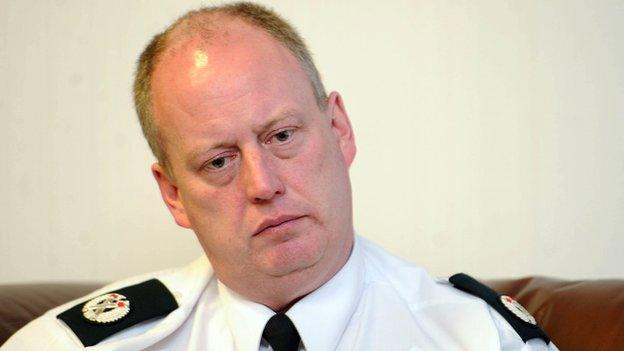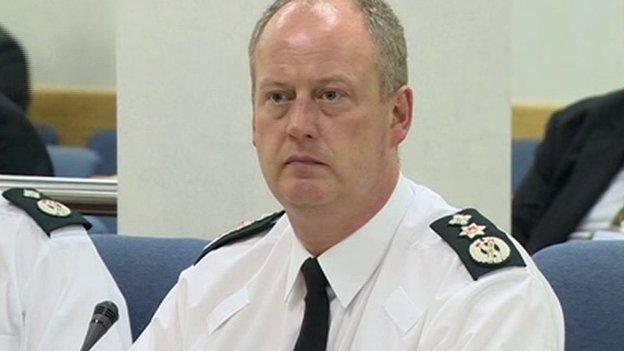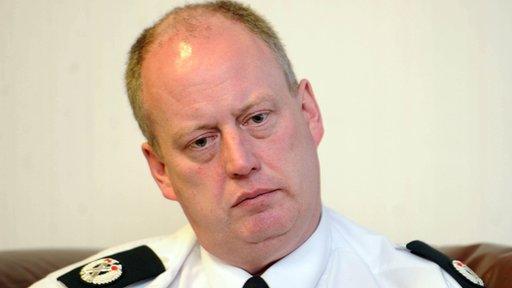NI Chief Constable George Hamilton: Coping with cuts and threats of violence
- Published

George Hamilton took on what is regarded as one of the toughest jobs in policing six months ago
Six months ago, George Hamilton took over what is regarded as one of the most difficult jobs in policing.
Speaking for the first time as chief constable of the Police Service of Northern Ireland, he told a seminar in west Belfast his priority was to "keep people safe".
The appointment was hugely symbolic.
The former Royal Ulster Constabulary (RUC) officer was selected for the job by a policing board panel that included Sinn Féin policing spokesman Gerry Kelly.
It would have been unthinkable just a few years ago.
'Honeymoon period'
Mr Hamilton was appointed amid warnings that Northern Ireland could be facing the most serious rioting for many years if an Orange Order parade was again prevented from marching along a section of the Crumlin Road past the Ardoyne shops in north Belfast.
But the potential crisis was averted and he was able to enjoy an unexpected honeymoon period when the Orange Order, unionist politicians and loyalists agreed on a policy of peaceful protest and what they called a "graduated response".

Three months into the job, George Hamilton warned of the potentially catastrophic consequences of budget cuts being imposed on the PSNI
The honeymoon did not last long. Three months into the job, Mr Hamilton was warning of the potentially catastrophic consequences of budget cuts being imposed on the PSNI.
He said less money and resources would result in fewer officers on front line duties, slower response times, and a radical rethink about how the PSNI fulfils its wide range of roles.
"It will no longer be possible to deliver the same level of quantity of policing services," he warned the policing board in September.
Echoing his comments on his first day in the job, the chief constable insisted that keeping people safe would always be the top priority.
Dissident attacks
But he made it clear that finding the resources needed to do so would not be easy.
Those he is seeking to keep safe include the officers he leads, and a number have narrowly escaped death or serious injury during his short time at the helm.
Dissident republicans remain intent on killing PSNI officers and have deployed sophisticated new homemade mortars and a rocket launcher to attack police vehicles.
There have also been several attempts to lure officers into traps.
Behind the scenes, undercover police units, the security services and a specialist military unit have been working to combat that threat.
There have been a large number of arrests of suspected dissidents and seizures of weapons and explosives.
The scale of the arrests and seizures demonstrates the extent to which dissident groups have been infiltrated, but also the fact that they still pose a threat.

Dissident republicans continue to try and kill police officers
- Published4 December 2014

- Published29 May 2014
